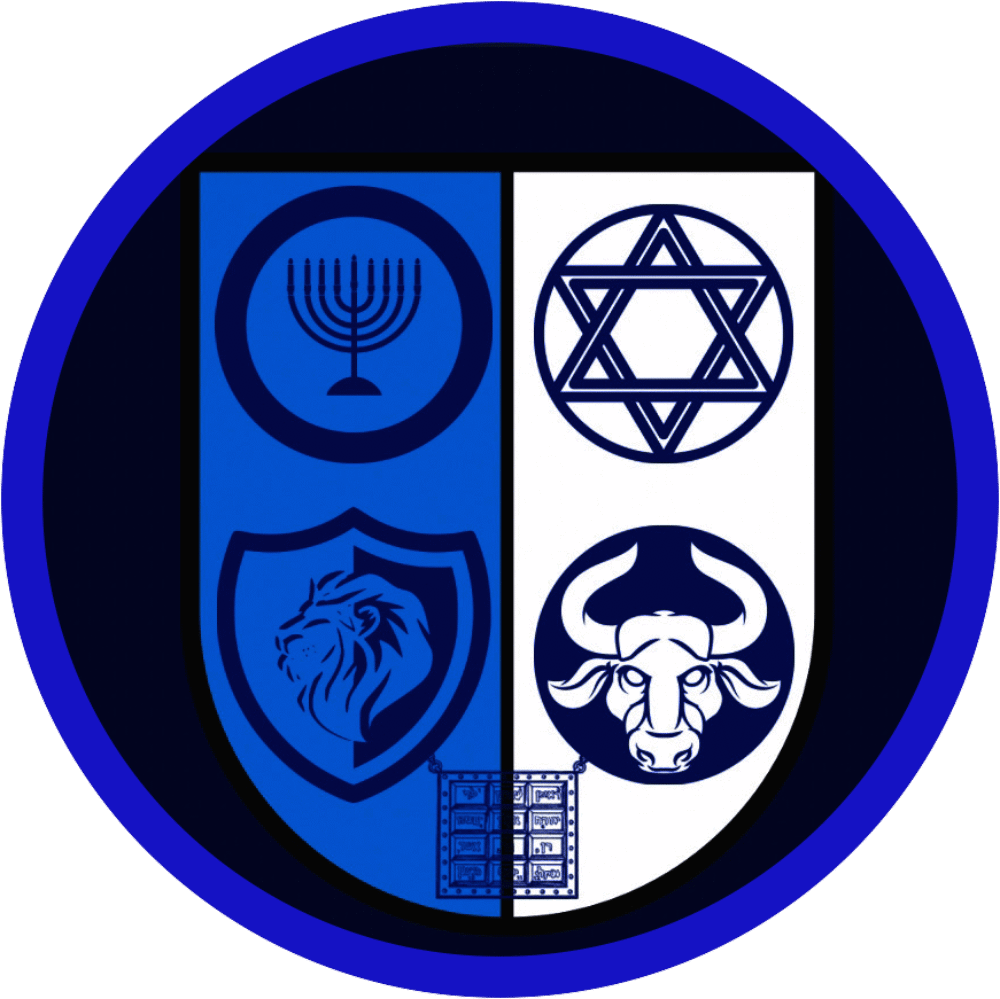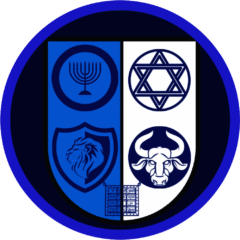
Parashat Lech-Lecha is the 3rd weekly Torah portion in the annual Jewish cycle of Torah reading.
Abraham leaves with his wife Sarai and nephew Lot at the Lord’s command from
Charan. His journey leads to the Promised Land, to the place of Shechem.
Here G-d appears to him, who gives this land as an inheritance to Abram and his descendants.
However, famine breaks out in Canaan, so Abram and Sarai go down to Egypt to find food for themselves and herds for sustenance.
After the return from Egypt, there were more and more frequent conflicts between Abram and Lot shepherds. Abram sees that he and his nephew Lot cannot live together, so he encourages Lot to make a choice the territory where he wants to settle with his herds.
Lot chooses a fertile plain by the Jordan River, near the city of Sodom. After that, the Hashem again promises the land of Canaan to Abram and his descendants that he will have “as the dust of the earth”.
Abram then settled in Mamre near Hebron.
After these events, they brought four foreign kings to war to fight against the five Canaanites to kings who no longer wanted to be their vassals.
However, the foreign kings were victorious in the battle in the valley of Siddim, defeating the armies of the kings of the cities of Sodom and Gomorrah and these they plundered. In doing so, they captured Abram’s nephew Lot. Abram with 318 faithful defeated the foreign troops and Lot
freed.
On his return from the victorious battle, in addition to the king of Sodom, the king of the city of Salem also came to meet him (Jerusalem) Melchizedek, who blessed Abram.
The Hashem reaffirms Abram’s faith and makes a covenant with him. He promises him a son – the heir and at the same time reveals to him the future of his family. He especially recalls the fact that Abram’s descendants will be slaves in Egypt, but from where they will come out as a free people.
Sarai cannot yet give her husband a son, so she decides to give her slave Hagar to Abram for a wife, that she might bear him him.
After Hagar’s pregnancy, the relationship between her and Sarai deteriorates greatly. Hagar bears Abram a son Ishmael, who, although he is the firstborn, is not chosen to take over Abram’s priesthood heritage.
When Abram was ninety-nine years old, G-d renewed the covenant with him and changed his name from Abram to Abraham.
The same is the case with Sarai, which will now be called Sarah. A sign of renewed G-d
of the covenant is circumcision, which will serve as a reminder of observance throughout all generations faithfulness to the G-d of Abraham, Isaac and Jacob.
Abraham circumcised all the males of his household, including his thirteen-year-old son Ishmael.
Finally, G-d promises Abraham a son, Isaac, who will be the heir of his spiritual legacy
father.
In this sidra we meet Abram for the first time – Abraham as the bearer of thought of monotheism, belief in one and only G-d. Abraham becomes a preacher of monotheism and passes this idea on to his son Isaac.
Immediately at the beginning of the sidra, before leaving the Temple, G-d blesses Abram:
“I will make you a great nation, I will bless you, I will make your name great.
Become a blessing! I will bless those who bless you, curse those who curse you.
All the families of the earth will be blessed in you.” This blessing can also be seen as G-d’s promise that G-d will endow (bless) Abram with property not only natural, but especially spiritual property. Abram now becomes a source of blessing for others as well.
In the 17th chapter, i.e. towards the end of the sidra Lech Lecha, G-d renews the covenant with Abram a he changes his name to Abraham, which already speaks of being chosen.
Abram = Ab (father) frame (noble), this name also appears in cuneiform tablets in
forms of Abiram or Aburam. Changed name Abraham = Ab (father) ham-ón (multitude), thus Araham becomes the father of many
nations. G-d concludes an eternal covenant with Abraham, among other things, with the words: “…I will be G-d to you also to your offspring” (Genesis 17:7).
The Hashem declares here that he will be a G-d of mercy and compassion, bringing blessings and that Abraham’s seed, that is, Israel, would be his chosen people to be cared for and to guard it.
However, Israel must unconditionally accept the sovereignty of G-d and serve only the Hashem and pay respect.
He must, like Abraham, walk continually before G-d and be blameless.
Although in this sidra we meet Abraham for the first time as a man whom G-d chose he chose to be the herald of G-d’s oneness and uniqueness to the peoples of the whole world, traditional Jewish literature – the Midrash tells about the fact that Abraham recognized the oneness and uniqueness of G-d already in early childhood, when he still lived with his father Térachus in Mesopotamian Ur.
One such midrash relates the following: Once, when Abraham was three years old, he came out of the cave and he saw nature around him. He began to think about who created the earth and the sky and who created Himself. He looked to the sky
and saw the sun shining. He was mesmerized by its immense size, the bright glow and the heat it gave off. All day long, he praised the sun in his prayers. By evening, however, the sun had set horizon and the moon appeared in the sky, surrounded by ten thousand stars. Abraham pondered and said to himself, “This great light is surely a deity, and the little lights, surrounding him are his nobles, soldiers, and servants.” hymns for the month. But morning came.
The moon suddenly disappeared in the west and the sun rose again in the east.
Then Abraham stopped and said to himself: “No, there must be someone who rules over the sun and the moon. To this ruler I will pray.”
Chassidic Parashat
The Way Of Avraham Avinu
Avraham actively pursued his spiritual path, applying logic and reason until he arrived at the truth.
“And Hashem said to Avram, ‘Go take yourself away from your land and from your birthplace and from your father’s house, and go to the land which I am going to show you’”. (Bereishis 12:1)
In the very first verse in the Torah, Rashi, in his classic commentary, asks a question so penetrating, that in the first moments of our new foray into learning the Torah, we are catapulted into immediate soul searching. What is our relationship to the Torah and what is our place in it?
Rashi asks, why does the Torah begin with the account of creation and the subsequent stories of the lives of the Patriarchs (Avos) and Matriarchs (Imahos).
If the Torah is a book of laws (Zohar, Torah is from the word horaah, instruction), then why doesn’t it begin with the first mitzvah, the sanctification of the new moon and the declaration of Rosh Chodesh? One of the most compelling answers to this question that I remember hearing in my first years in Yeshiva. is from the Midrash (Vayikra Rabbah 9:3). Derech Eretz Kadma L’Torah. The way of the world preceeds the Torah.
Derech Eretz here refers to proper mannered behavior, to be the exemplary
person that is truly a reflection of the Creator. The study and acquisition of these
character traits are a prerequisite to the acquisition of Torah knowledge. From
where is Derech Eretz learned? From the Avos and Imahos. This is Derech Eretz is
before Torah. Before we can get into the laws of the Torah a person must have Derech Eretz. That is why the Torah begins with the stories of the lives of the Avos.
Avraham Avinu was the first of the Avos. The Ohr HaChayim, R’ Chayin ben Attar, (a contemoprary of the Baal ShemTov whose commentary greatly influenced Chassidic thought), says on the first verse in Parshas Lecha Lecha (Bereishis 12:1), that Hashem came straight to Avraham and immediately began to speak to him, something He didn’t do with any other prophet or sage. Before He spoke to the other Avos, or to Moshe Rabbenu, Hashem first appeared to them, so to speak to introduce himself. Only afterwards did he begin to speak to them.
With Avraham the situation was different. At a very young age, without any instruction, Avraham had already learned that there was a Creator, and he began to teach the people of his generation who this Creator was. The Midrash relates how Avraham was trying to figure out who created and therefore ruled the world. He saw the life giving power of the sun. So he paid homage to the sun, assuming that the sun had created the world. Then the night fell. The sun was no longer to be seen. The moon, surrounded by the stars commanded the sky. So he paid homage the the moon, to the creator of the
world. When the sun reappeared in the morning, he understood that neither one
had any dominion. Later in the day, clouds came which blocked the rays of the sun. Perhaps the clouds were the power that ruled the world? No! Soon came the winds and blew them all away. Finally Avraham reasoned that there must be some other force that was responsible for all these natural phenomena. Avraham had discovered Hashem!! At a very young age (three years old or five years old), Avraham began to try to convince the people in his generation that there is only one G-d, and only he sees us and hears us and responds to us. (See the many well known Midrashim about Avraham and his father’s idols.)
The Ohr HaChayim says that Hashem immediately spoke straight to Avraham with no need for any introductions. Since Avraham had already discovered Hashem on his own, Hashem was speaking to someone who already knew and loved him.
Furthermore, Avraham was the first one in the last ten generations that knew Hashem and spoke about him. But Hashem had been let down already by less worthy human beings in every generation since the flood. So Hashem tested Avraham by commanding him to go to an unidentified land, without any accompanying revelations of the Divine Prescence.
“And Hashem appeared to Avram sayings, and to your children I will grant this land. And Avram built an altar for the Hashem who appeared to him.” (Bereishis 12:7)
When Avraham passed the test with flying colors, Hashem finally revealed to him the Divine Presence.
“Listen daughter and behold, incline your ear and forget your people and your father’s house.” (Psalms 45:11) The Midrash says that this verse is hinting at Avraham. Listen refers to Avraham who listened to the voice of Hashem who said, “Lech Lecha.! Go!” Behold also refers to Avraham who saw the Divine Presence when Hashem appeared to him. Notice that the verse says, “Hear daughter and behold. . .”. It reflects Avraham’s experience. He heard, he acted, (the word daughter which separates between hear and behold), then he saw the Divine Presence.
“And Hashem appeared to Avram sayings, and to your children I will grant this land. And Avram built an altar for Hashem who appeared to him.” (Bereishis 12:7)
After Hashem appeared to Avraham, Rashi says that he built the altar in gratitude for the good tidings of children and the Land of Israel which are mentioned in the verse. The Ohr HaChayim disagrees. He says that the verse is coming to tell us about the unparalled joy of Avraham after beholding the Divine Presence. It is not the promises of children and Land which prompt Avraham to built an altar. Rather, the verse testifies that, “. . . Avram built an altar for Hashem who appeared to him”. Avraham rejoiced and gave thanks to Hashem who for the first time revealed to him His Divine Presence. In fact, says the Ohr HaChayim, the two promises of children and Land really mean nothing to him in light of his deveykus, and his joy in the revelation of Hashem. This is the understanding of the verse, “. . .the fullness of joy is (to be) in Your presence . . .”. (Psalms 16:11)
The sages enjoin every Jew to ask himself, “When will my deeds be like those of my ancestors”? (Tanna D’vei Eliyahu Rabbah 25) The implication is that we are enjoined to emulate the deeds of the Avos and Imahos, of Avraham, Yitzchok, Yaacov, Sarah, Rivka, Rachel and Leah. The fact that the sages can obligate us to engage in such an act of introspection means that the answer is close at hand. May we be successful in learning and emulating the ways of our Avos and Imahos.
Everything Is From Hashem
Even after concentrated efforts, spiritual achievements are still gifts from Hashem.
“And Avraham believed in Hashem, and He considered it as righteousness (Tzedakah).” (Bereishis 15:6)
The above translation is according to the commentary of Rashi. R’ Yitzchok Meir
of Gur, the Chiddushei HaRIM, has a brilliant way to read the verse. “And Avraham believed in Hashem, and he (Avraham) considered it as righteousness (Tzedakah).” From Avraham we learn an essential principle in Jewish thought.
Everything comes from Hashem. When Avraham reached a high level of faith and
belief in Hashem, he considered it to be Tzedakah from Hashem. Even the faith which one works so diligently to cultivate, is ultimately a gift from the Creator!
Great Ideas In Minds Of Men
R’ Zusia of Anipoli again found himself in debt with the repayment date the next morning, and the resources with which to repay nowhere in sight. R’ Zusia however, was a Tzaddik of perfect faith. Long ago he had placed himself totally in the hands of the Creater of the World, and he had no need to be concerned. So R’ Zusia, wanting to further demonstrate to his Creator how perfect his faith and trust were, sat down with a piece of paper. On it he recorded 25 different scenarios in which the money needed to pay back the debt comes his way. The rest of the evening passed, and R’ Zusia gave the situation no further thought. The morning came, and no sooner did R’ Zusia finish his morning prayers, than did the required sum manifest itself. But the money came to R’ Zusia, in a 26th way, according to a scenario that he didn’t think to record. “Oy yoy, oy yoy”, he moaned, thoroughly diwith himself. “Is the Creator of the World limited to the feeble ideas of R’ Zusia!?”


